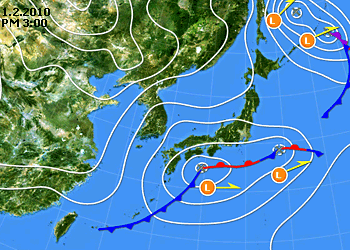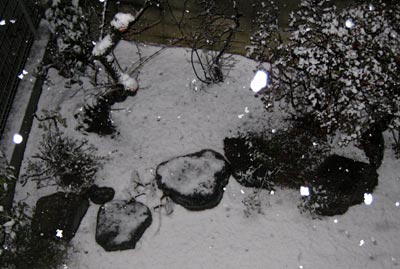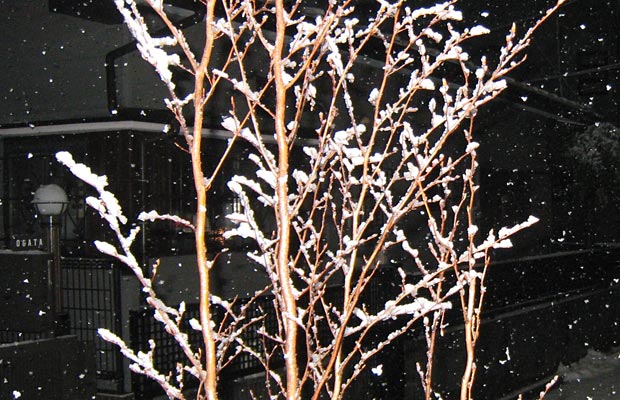- Life top
- Daily Life
- Applying for LINE stickers
- Exhibition of Matsumoto-sensei
- Hana - Shiba-Inu
- Elec. handicraft & Akihabara
- Supermarkets in the area
- Takaido Civic Center
- Building a house
- Horrible dentists
- Judo therapy
- In an elderly care home
- Parties
- Cosplay bonenkai 2010
- Gainax cosplay bonenkai
- Friends from Gainax
- Friends from schooldays
- Party at Bar Espion
- Home party with cheese
- Music Life
- TARO Quartet
- Maeda-san - violin maker
- Chigusa Kindergarten
- Seniors playing music
- My viola debut
- Torakyo regular concert
- Toranomon Orchestra
- Four seasons
- Shrine visit of the New Year
- New Year´s postcard
- Snowfall in Tokyo
- Hina-matsuri and hina-dolls
- Sakura - cherry-blossom
- Sakura - what I missed most
- Fireworks Festival
- People
- Itakura - his adventurous life
- Naoto - his country life

Snowfall in Tokyo
Around mid-night. snowfalls on the roof of a neighbor's house.
It snowed in Tokyo in the night from the first to the second of February. Though the depth was just a few centimeters, it was the first snowfall in two years. Japan is indeed one of the snow-rich countries. However, snow usually falls on the north-western side of the archipelago and the south-eastern side facing the Pacific Ocean enjoys a dry and sunny winter. This is due to the monsoon blowing from the high pressure system in Siberia.However, when a new year starts the typical winter pressure pattern is disturbed by low pressure areas occasionally forming in the Pacific Ocean. In particular when low pressure areas form in the vicinity of Taiwan and quickly develop while moving eastwards between the 30th parallel and the coast but not too near to the coast, they strongly absorb cold air from the north and give snowfall along the Pacific coast including Tokyo. In 1984 the total volume of snowfall in Tokyo registered a record of 92 cm. In the 21st century, we do not have much snow in Tokyo. Nevertheless, almost every year snowfalls in Tokyo.

Taiwan Bozu is already grown up and draws in lots of cold air from the north. Snow starts to fall in Tokyo about 3 hours later than this map.

Snow is falling on my small garden.
Such low pressure areas which cause stormy weather and snowfall used to be called "Taiwan Bozu" (Taiwan Bonze). They were called "bozu" because the initial pattern of isobars around Taiwan Bozu looks similar to the bold head of a Buddhist bonze. However, the Meteorological Agency decided in 1975 not to use this terminology but to call them "low pressure areas off the south coast". Thereafter, the terminology "Taiwan Bozu" became suddenly shut out from all official announcements as well as media reports.
It is presumed that the Meteorological Agency decided to avoid "discriminatory words". However, I cannot agree why "Taiwan bouzu" can be discriminatory. Taiwan is a neutral word to describe an island. "Bozu" is also a neutral word to describe Buddhist monk. Bouzu came to mean "bold head", as monks have their hair cut, and consequently "young boys", because they used to have bold head. Thus, "bozu" is neutral in its meaning or it is sometimes used with certain affection. Therefore, I cannot agree to the idea to give up this word because of its discriminatory character.
Anyhow, this time the naughty boy was not naughty enough and gave us only a small bit of snowfall. But, covered with white snow, Tokyo looked much more beautiful than usual.

snowfalls also on a narrow alley and between houses.